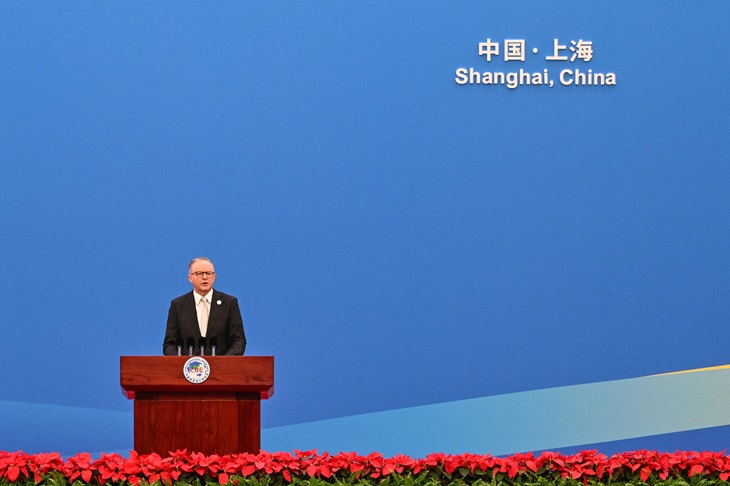Gosh, who knew the Prime Minister would be acclaimed as a ‘handsome boy coming from Australia’, as announced by China’s Premier Li Qiang in the Great Hall of the People?
Was the Premier’s supposed tongue-in-cheek quip, excitedly reported by the Australian media pack travelling with Mr Albanese, another example of the arcane, diabolically convoluted diplomatic speech Chinese rulers have employed for centuries?
‘Handsome boys’ are usually thought of in terms of Peking Opera, not Prime Ministers of sovereign states.
Already a subscriber? Log in
Subscribe for just $2 a week
Try a month of The Spectator Australia absolutely free and without commitment. Not only that but – if you choose to continue – you’ll pay just $2 a week for your first year.
- Unlimited access to spectator.com.au and app
- The weekly edition on the Spectator Australia app
- Spectator podcasts and newsletters
- Full access to spectator.co.uk


























Comments
Don't miss out
Join the conversation with other Spectator Australia readers. Subscribe to leave a comment.
SUBSCRIBEAlready a subscriber? Log in